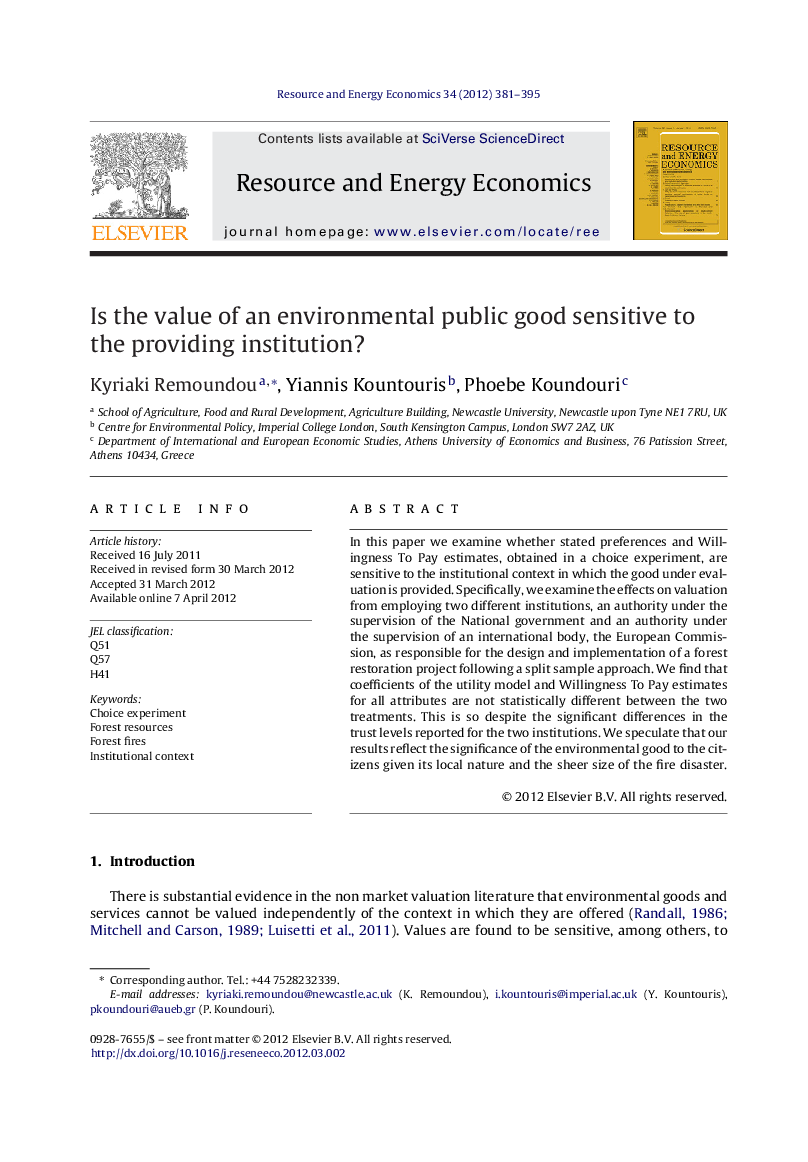| Article ID | Journal | Published Year | Pages | File Type |
|---|---|---|---|---|
| 985460 | Resource and Energy Economics | 2012 | 15 Pages |
In this paper we examine whether stated preferences and Willingness To Pay estimates, obtained in a choice experiment, are sensitive to the institutional context in which the good under evaluation is provided. Specifically, we examine the effects on valuation from employing two different institutions, an authority under the supervision of the National government and an authority under the supervision of an international body, the European Commission, as responsible for the design and implementation of a forest restoration project following a split sample approach. We find that coefficients of the utility model and Willingness To Pay estimates for all attributes are not statistically different between the two treatments. This is so despite the significant differences in the trust levels reported for the two institutions. We speculate that our results reflect the significance of the environmental good to the citizens given its local nature and the sheer size of the fire disaster.
► A choice experiment has been implemented to value a forest restoration project in the aftermath of a significant wildfire. ► The impact of the institutional context on preferences and Willingness To Pay estimates is examined following a split sample approach. ► The first sample was exposed to provision of the good under the European Commission while the second under the National Government. ► The value of the attributes under consideration is not sensitive to the institutional context.
